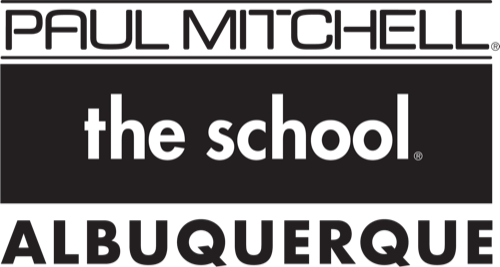MAKE-UP ARTISTRY COURSE DESCRIPTION
Significant reading, writing and studying will occur during the educational experience. You must have a sufficient understanding of the English language in order to successfully complete the program. All courses are taught in English.
Make-Up Artistry: Standard Occupational Classification (SOC) 39-5091
Classification of Instructional Programs (CIP ) Code 12.0406
The curriculum involves 600 clock hours to satisfy New Mexico state requirements. The program includes extensive instruction and practical experience in makeup artistry.
*Students are prepared for entry level makeup artist.
This course is taught in English. Textbooks and Course Materials are only offered in the English Language.
MAKE-UP ARTISTRY COURSE OVERVIEW
Course Hours: 600 clock hours
The course is divided into clinical classroom instruction and clinical service learning experiences.
- Clinical Classroom Instruction: The hours are devoted to classroom workshops where students learn design principles, technical information, and professional practices.
- Clinic Classroom Learning Experience: The remaining hours are spent in the clinic area where practical experience is gained.
MAKE-UP ARTISTRY COURSE OUTLINE
- Make-up Artistry Curriculum: During this 600 hour program, students will master the knowledge and skills in makeup artistry and gain a strong foundation of: cosmetic chemistry, sanitation, make overs, natural application, evening application, camouflage, corrective, character, high-definition photography, editorial, glamour, and bridal work. Students will learn sales techniques, advanced product usage, and customer relations in preparation for work as makeup artists in salons and spas, on set, in the studio or paramedical spas, or for freelance makeup career opportunities.
MAKE-UP ARTISTRY COURSE SUBJECTS
The instructional program of Paul Mitchell the School Albuquerque meets or exceeds the state requirements:
| Subjects | Hours |
|---|---|
|
1. THEORY - CLASSROOM INSTRUCTION |
75 |
| 2. STERILIZATION, SANITATION, BACTERIOLOGY Health, Public Sanitation, Methods, Chemical Agents, Types, Classifications, Bacterial Growth, Biology, Infections, Infection Control, Products, tools, Equipment use and safety. |
75 |
| 3. MAKE-UP FUNDAMENTALS, ADVANCED, SPECIALTY Principles and Techniques of Make-Up, Preparing the Skin Facial Treatments, Cosmetic Application, Hi-Lighting, Contouring, Camouflage, Artificial Eyelashes, Eyelash Extensions, Lash/Brow Tinting, Aging Skin, Men, Teen, Bridal, Period Make-Up, High Fashion, Runway, Drag, TV, Film, Special Effects. |
350 |
| 4. BUSINESS Professional Ethics, Professional Image, Career Option, Earning Potential, Fundamentals of Business Management, Owning a Studio, Licensing Requirements and Regulations, Resume Preparation, Compensation, Interviewing, Marketing & Advertising, Branding, TV and Film Union Etiquette. |
50 |
| 5. MISCELLANEOUS To be applied by the Instructor to strengthen student performance, Supervised field trips, and related training. |
50 |
|
TOTAL CLOCK HOURS |
600 |
The institution offers employment assistance to help graduates’ efforts to secure education-related employment that includes, but is not limited to training in professionalism, resume’ development, job interview preparation and job search skills.
MAKE-UP ARTISTRY COURSE PROGRAM TESTING AND GRADING PROCEDURE
The following tests and grading procedures are incorporated during the student’s 600-hour course:
- Academic theory exams: Students must receive a grade of 80% or higher on each assigned theory exam.
MAKE-UP ARTISTRY COURSE INSTRUCTIONAL TECHNIQUES AND METHODS
The 600 hour make-up program are provided through a sequential set of learning steps which address specific tasks necessary for State Board preparation, graduation and job entry level skills. Clinic equipment, implements and products are comparable to those used in the industry. Each student will receive instruction that relates to the performance of useful, creative and productive career oriented activities. The course is presented through well-developed lesson plans that reflect the latest educational methods. Subjects are presented by means of lecture, demonstration, and student participation. Audio-visual aids, guest speakers, field trips, and other related learning methods are used in the course.
